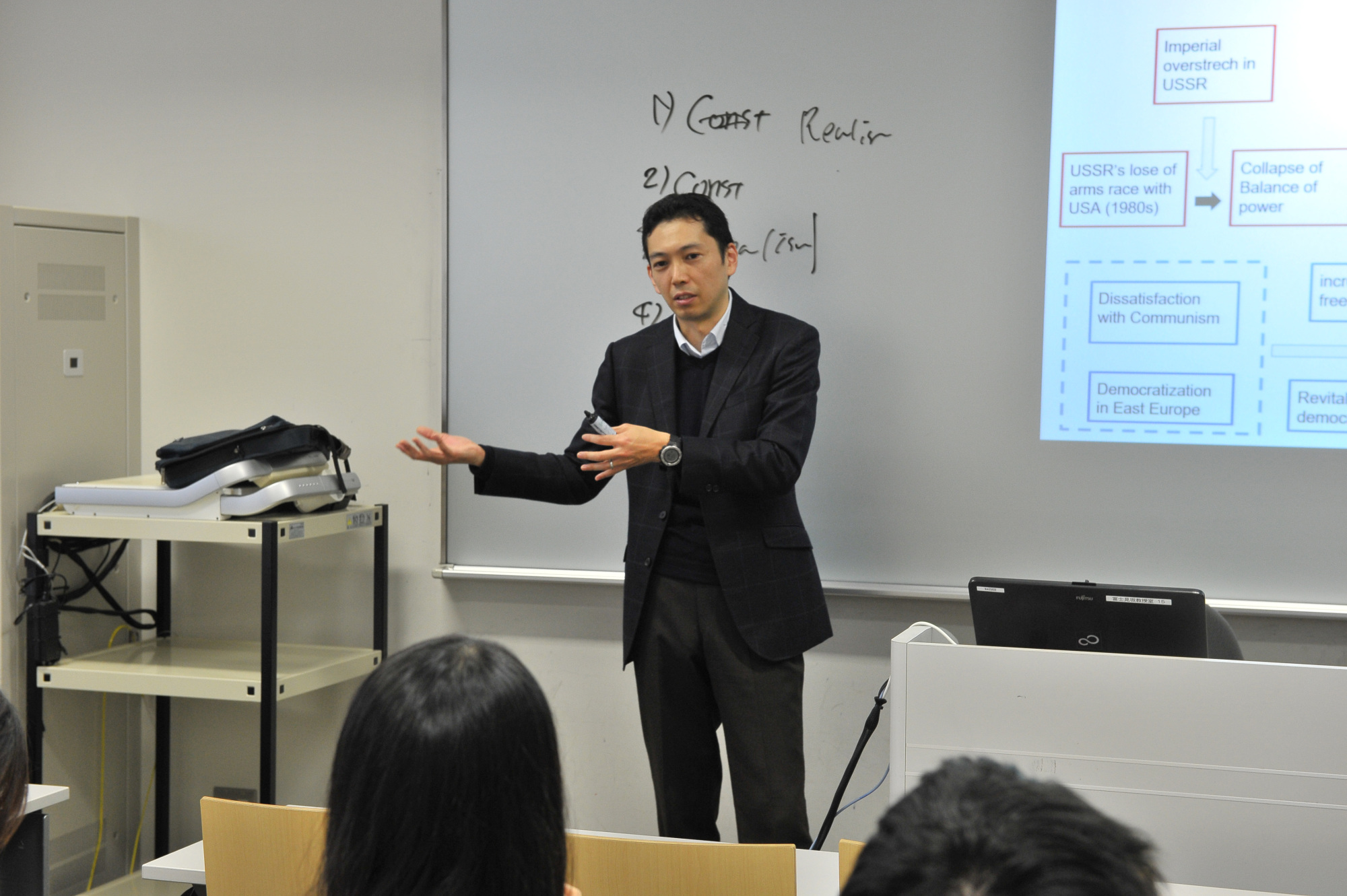What is the key to developing flexibility in thinking — a crucial ability to live and work in the era of globalization? A recent classroom visit may have revealed a possibility for the future of universities in Japan.
The "World Politics" class began with an English PowerPoint presentation by three students tackling a huge subject: the end of the Cold War. They presented to 13 of their classmates the major historical events after World War II; showing how the U.S. and the USSR saw each other as "black boxes" because of the differences in ideologies, political systems and economic structures, and explained how the conflict changed in the latter years of the Cold War.
"Before moving to discussion, let me clarify a theoretical point," said Takeshi Yuzawa, a professor of international relations at the Faculty of Global and Interdisciplinary Studies (GIS) at Hosei University. While appreciating the logical tree that was shown in the presentation, the professor facilitated the students' discussions on the question, asking, "Which theory is most useful for explaining the end of Cold War: realism, liberalism or constructivism?" The students actively discussed the issue in small groups of two or three for the first 10 minutes, followed by a full class session for the rest of the hour. All discussions took place in English.

















With your current subscription plan you can comment on stories. However, before writing your first comment, please create a display name in the Profile section of your subscriber account page.